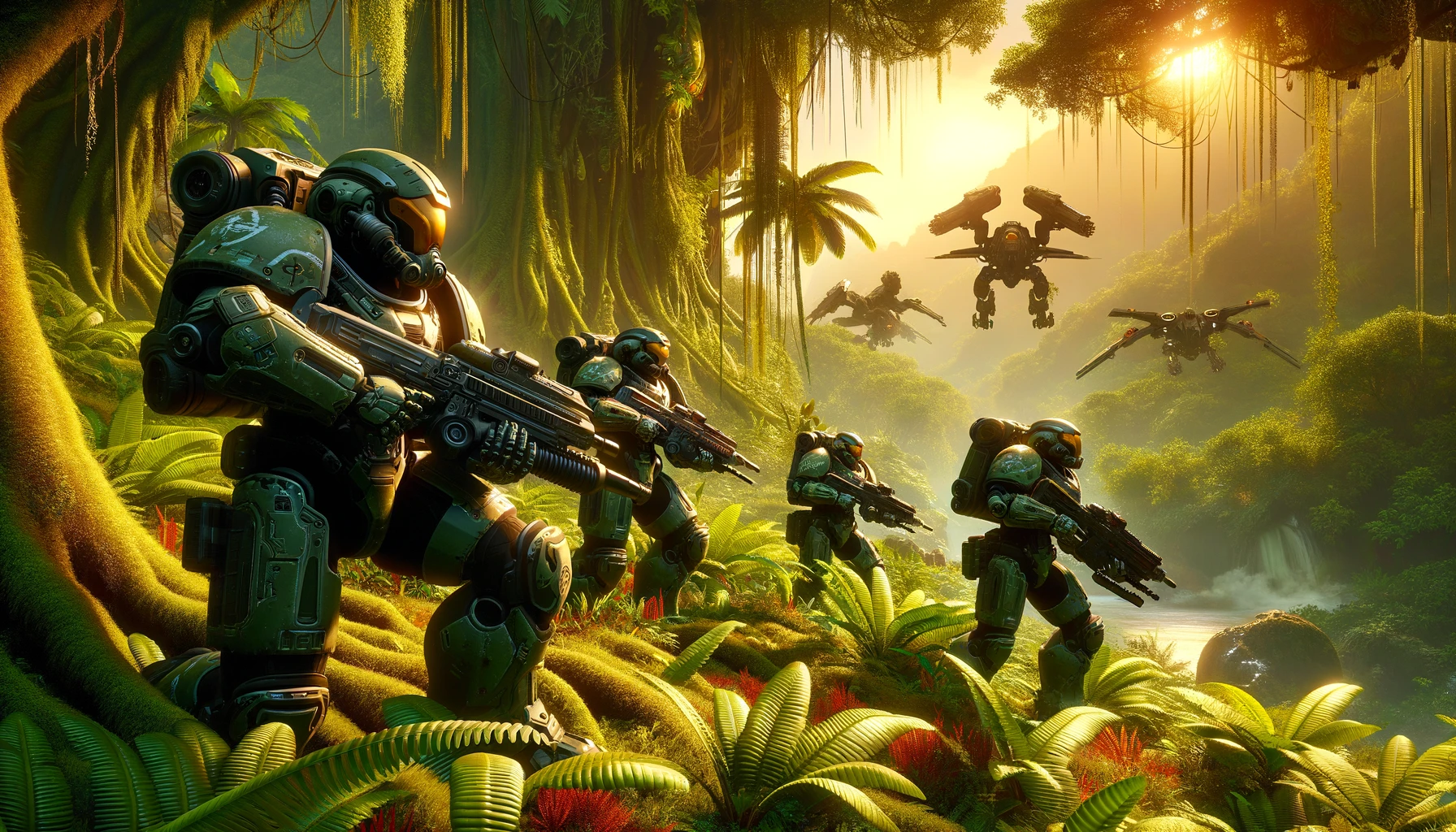The gaming industry often sees titles evolve significantly during their development phase, and Helldivers 2 is a prime example. Originally not planned as a live-service game, the development team at Arrowhead made a pivotal decision part-way through its creation to steer the game in this direction. This choice was influenced by the potential to continually adapt and enhance the storyline, providing a dynamic, ever-evolving gaming experience. Russ Nickel, the former lead writer for Helldivers 2, highlighted how this shift allowed the game to fully utilize the live-service model, adapting the ongoing narrative to maintain freshness and engagement.
Development Insights and Strategic Shifts
Throughout the development of Helldivers 2, the team encountered numerous changes and enhancements. Nickel, who has since moved on from the project, shared his experiences during the later stages of development. The main focus was integrating a compelling narrative into what was initially just a playable prototype. This narrative evolution was deemed essential in transforming the prototype into a complete game that could support the live-service model effectively.
The Role of a Game Master in Live-Service Gaming
An intriguing aspect of Helldivers 2’s development is the introduction of a Game Master, akin to a Dungeon Master in Dungeons & Dragons. This role, filled by a developer named Joel, involves dynamically shaping the game’s universe based on player interactions, which can involve millions at a time. Nickel’s own experience as a Dungeon Master provided valuable insights into letting go of rigid plans to embrace a more fluid, collaborative approach to storytelling and game development.
Collaboration and Improvisation in Game Writing
Nickel’s background in improvisation, shared with co-writer Stephen Flowers, played a crucial role in their approach to game writing. This experience allowed them to rapidly adapt to new ideas and directions during the game’s development. Their collaborative spirit is a testament to the improvisational skills honed over years of working together, which proved beneficial in the dynamic environment of game design.
Practical Takeaways from Helldivers 2’s Development
- Adapting narrative elements can significantly enhance player engagement in live-service games.
- The role of a Game Master can be pivotal in maintaining a dynamic and responsive game environment.
- Skills in improvisation are invaluable in the fluid and fast-paced field of game development.
Helldivers 2 represents a clear example of how flexibility and responsiveness in game development can lead to successful adaptation of a game’s model mid-development. The incorporation of a live-service framework has not only extended the lifespan of the game but also intensified its appeal by involving players in an evolving story. This engagement is further enhanced by the active role of a Game Master, who continuously shapes the game’s narrative based on real-time player activity and decisions. Moreover, the collaborative and improvisational approach adopted by Nickel and his team underscores the importance of adaptability in the creative process of game development.
Ultimately, the evolution of Helldivers 2 from a fixed narrative to a live-service model highlights the broader trend in gaming towards more interactive and mutable game experiences. As developers and writers like Russ Nickel and his team continue to innovate, the dynamic between player choice and narrative development becomes increasingly synergistic, offering richer and more engaging gaming experiences that resonate with a diverse audience of players around the globe.










